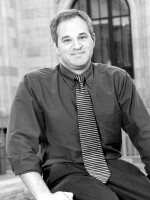RENEE MONTAGNE, host:
A federal racketeering trial involving the tobacco industry ended yesterday after nine months of testimony. Now Judge Gladys Kessler will decide whether the industry conspired to hide the dangers of smoking. In closing arguments, Justice Department lawyers asked the judge to impose marketing restrictions on cigarettes. They also defended themselves against criticism that they've gone too easy on the industry during the case. NPR's Adam Hochberg reports.
ADAM HOCHBERG reporting:
The massive federal lawsuit attempts to end what the government considers to be 50 years of tobacco industry fraud. Originally filed by the Clinton administration in 1999, the suit accuses the industry of targeting cigarette ads at teen-agers and systematically misleading the public about the risks of smoking. Health advocate Bill Corr with the Campaign for Tobacco-Free Kids calls the case the most comprehensive one ever against cigarette makers.
Mr. BILL CORR (Campaign for Tobacco-Free Kids): The Justice Department has told a story of how the tobacco industry lied to the American people about whether cigarettes were harmful, whether they were addictive, whether they were marketing to kids. There are ample examples and the Justice Department has presented them, of how the companies have continued to violate the law.
HOCHBERG: But the marathon case takes the Justice Department down an untested legal path. The government filed the suit under a racketeering law Congress passed to battle organized crime. The suit claims tobacco companies engaged in mail and wire fraud as part of the alleged conspiracy of deceit. Industry lawyers refute those charges and called the government's case a house of cards. Bill Ohlmeyer with Altria, the parent company of Phillip Morris, says nothing in the cigarette maker's past rises to the level of a conspiracy.
Mr. BILL OHLMEYER (Altria): The company certainly has made some mistakes and, in hindsight, should have done some things very differently than it did. But if the question is `Did the company commit mail or wire fraud in the past?,' the answer is no. And if the question is `Is the company committing fraud as we speak and do they intend to commit fraud in the future?,' I think the answer is clearly no.
HOCHBERG: In the six years they've worked the case, government lawyers have suffered some major setbacks. Initially, they sought a cash award from tobacco companies, upwards of $200 billion. But courts ruled the government isn't entitled to any money in the case and only can push for measures designed to correct the industry's alleged misbehavior. Legal analyst Mary Aaronson says that's left the government with much lower expectations like cigarette advertising restrictions, and the creation of an industry-funded anti-smoking program.
Ms. MARY AARONSON (Legal Analyst): Therein lies the problem with this case in that the remedies that are available have to be remedies that are forward-looking and that has yet to be established whether or not the judges really bought into the idea that smoking cessation plans and the like are, indeed, forward-looking or simply punishment for past bad behavior on the part of the industry.
HOCHBERG: The proposed cessation program also has led to a political controversy in the trial's final days. Department lawyers this week asked the judge to order the industry to fund a $10 billion anti-smoking program, an amount they said would be a first step toward countering the industry's alleged fraudulent marketing. But Bill Corr, the health activist, says an effective campaign would cost more than $100 billion and he says the government's smaller request raises doubts about whether the Bush administration is fully committed to the case.
Mr. CORR: This Justice Department has regularly tried to undermine this lawsuit. In the early days, they tried to de-fund it, they tried to settle it, and now at the end when it's time to ask the court for the remedies that will solve these problems, it appears that the Justice Department has asked for less.
HOCHBERG: It likely will be months before Judge Kessler, an appointee of President Clinton, issues her ruling. The trial has resulted in a 45,000-page transcript with 6,000 exhibits, material the judge will review as she prepares to decide the largest racketeering case in American history. Adam Hochberg, NPR News, Washington.
MONTAGNE: This is MORNING EDITION from NPR News. Transcript provided by NPR, Copyright NPR.





